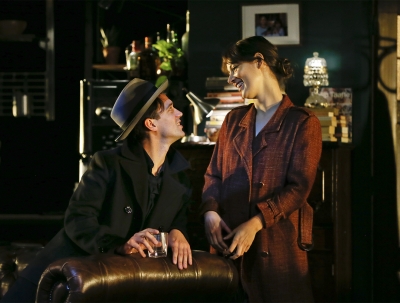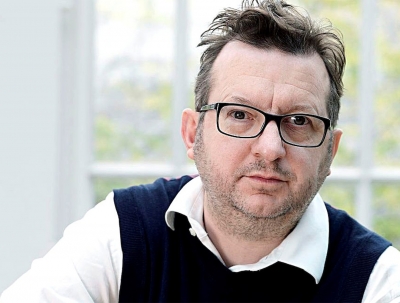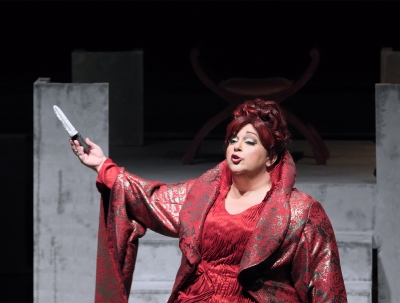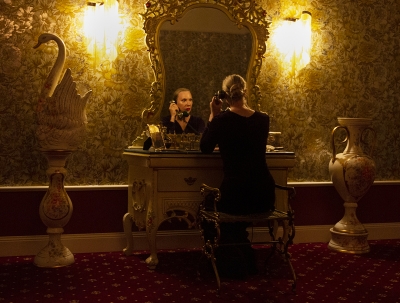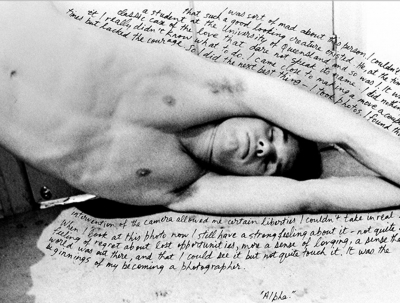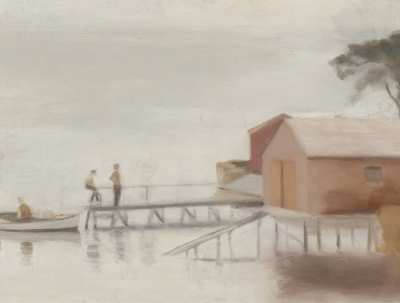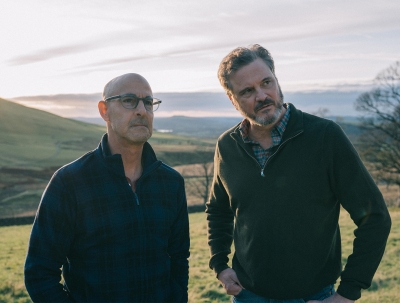Recent reviews
Film | Theatre | Art | Opera | Music | Television | Festivals
Welcome to ABR Arts, home to some of Australia's best arts journalism. We review film, theatre, opera, music, television, art exhibitions – and more. To read ABR Arts articles in full, subscribe to ABR or take out an ABR Arts subscription. Both packages give full access to our arts reviews the moment they are published online and to our extensive arts archive.
Meanwhile, the ABR Arts e-newsletter, published every second Tuesday, will keep you up-to-date as to our recent arts reviews.
Recent reviews
The works of New York artist Gregory Uzelac are currently being exhibited behind a set of nondescript, graffiti-laden doors on Sydney’s Bourke Street. The exhibition, titled Nice Is Different Than Good, has an underground feel to it. The art is presented on tarpaulin and pizza boxes, alongside traditional canvas. In each piece, neon-hued paint has been splashed about in shapes that are abstract, confronting, and occasionally reminiscent of Wassily Kandinsky.
... (read more)Berlin, by Joanna Murray-Smith, is an intense, very wordy, imperfectly plotted, but nonetheless stylish play. ‘Stylish’ is a strange word to describe a play about young love sabotaged by tragic secrets and the legacy of the Holocaust. Shouldn’t it also be ‘heart-breaking’, ‘harrowing’, or at least ‘poignant’? Perhaps, but ‘stylish’ is the right word for a play – a thriller, in fact – that is also a swiftly argued essay on the difficulties faced by sensitive and ethical individuals who want to free themselves from the snares of history to make a new future.
... (read more)Watch out. Depending on the tone and context in which they’re said, these words combine to various effects. In the presence of a definite danger – a frisbee flung carelessly or a vehicle careening off course – they ring with a flinching impact. Muttered indistinctly and without danger, ‘watch out’ becomes the threat itself, from word of caution to verbal omen. Watch this. With the alteration of a word, caution transforms into excitement. The demand to look twists into a signal of anticipation, uttered, perhaps, by a hopeful entertainer, preparing some spectacle or act of prestidigitation. Now, you’ve got to watch this. Less immediate, less anticipatory, here the pressure to look is pressed further, with renewed urgency, connecting it to social or even civic expectations.
... (read more)Spoiler alert: at the end of Ken Kesey’s One Flew Over the Cuckoo’s Nest, Randle Patrick McMurphy is lobotomised. It’s a tragic defeat for a counter-culture hero and a barbaric victory for the institution housing him. The psychiatric facility is depicted as a prison, its residents the doomed inmates, and its head nurse, the villainous Nurse Ratched, the warden. In that story, madness is analogous to freedom, and the final image of Chief making his escape for Canada is a much-needed glimmer of resistance and hope.
... (read more)The writer and academic Malcolm Bradbury once argued that we can find traces of the chaos, contingency, and plurality that typify the modern urban environment embedded in the structure of the modern novel or in the design and form of modernist painting. But in music? I think it is fair to say that classical composers have struggled to find similes as obvious, potent, or effective for the experience of living in a modern city as artists working in other media, or indeed as musicians working in other genres. It’s not for nothing that we commonly speak of urban rap, but not, say of urban symphonic music.
... (read more)For nearly two centuries considered the runt of Mozart’s operatic litter, La Clemenza di Tito has taken on new life this millennium. Written in the formalistic, to nineteenth-century ears even archaic, style of opera seria, this hastily composed two-act work of Mozart’s final year (first performed in Prague on 6 September 1791) is now received as fresh, even vital, overturning an inherited view of it as ‘a conception not fully realized’ (Julian Rushton). Its intensely political message is so pertinent to our own immoral times. Why, there is even a storming of the (Roman) Capitol towards the end of Act I, from which the instigators walk free.
... (read more)It’s the 1980s. Elsinore is a logging town, ruled by troubled royals. The King is dead, Hamlet is paranoid, and Ophelia is having some very strange dreams. Beyond the palace walls, a carnival approaches, the workers are rebelling, and the forest has grown hungry. This is the world of Because the Night, Malthouse’s bold return to performance after the shutdowns of 2020.
... (read more)With its title, William Yang: Seeing and Being Seen, an exhibition at the Queensland Art Gallery, signals two prongs of the politics of vision: the power of the gaze and the importance of representation, an apt framing for an artist who has been invested in both for more than fifty years. As a substantial and generous retrospective, curated by Rosie Hayes, it threads together the distinct but connected themes of Yang’s practice: queerness, particularly the queerness of gay men; Chinese-Australian identity and experience; the Australian landscape; and the art, film, and literary scene in Sydney.
... (read more)Clarice Beckett: The Present Moment
Bells and whistles are common enough, in both form and content, in contemporary exhibitions. This time they are actual, sonic: a soundscape of birdsong, a Melbourne tram bell, clopping horses’ hooves floating through Clarice Beckett: The Present Moment, which is at the Art Gallery of South Australia (AGSA) until 16 May. It’s lovely, subtle, complementing a revelatory encounter with an artist whose work is, through Tracey Lock’s enchanting exhibition, about to become far better known.
... (read more)Supernova marks the second film released in cinemas this month to deal with dementia, following The Father (2020). While Florian Zeller’s film, based on his own stage play, employs inventive devices to place the audience inside the mind of a character afflicted with the condition, Supernova’s more traditional approach is in service of achieving maximum emotional impact.
... (read more)

